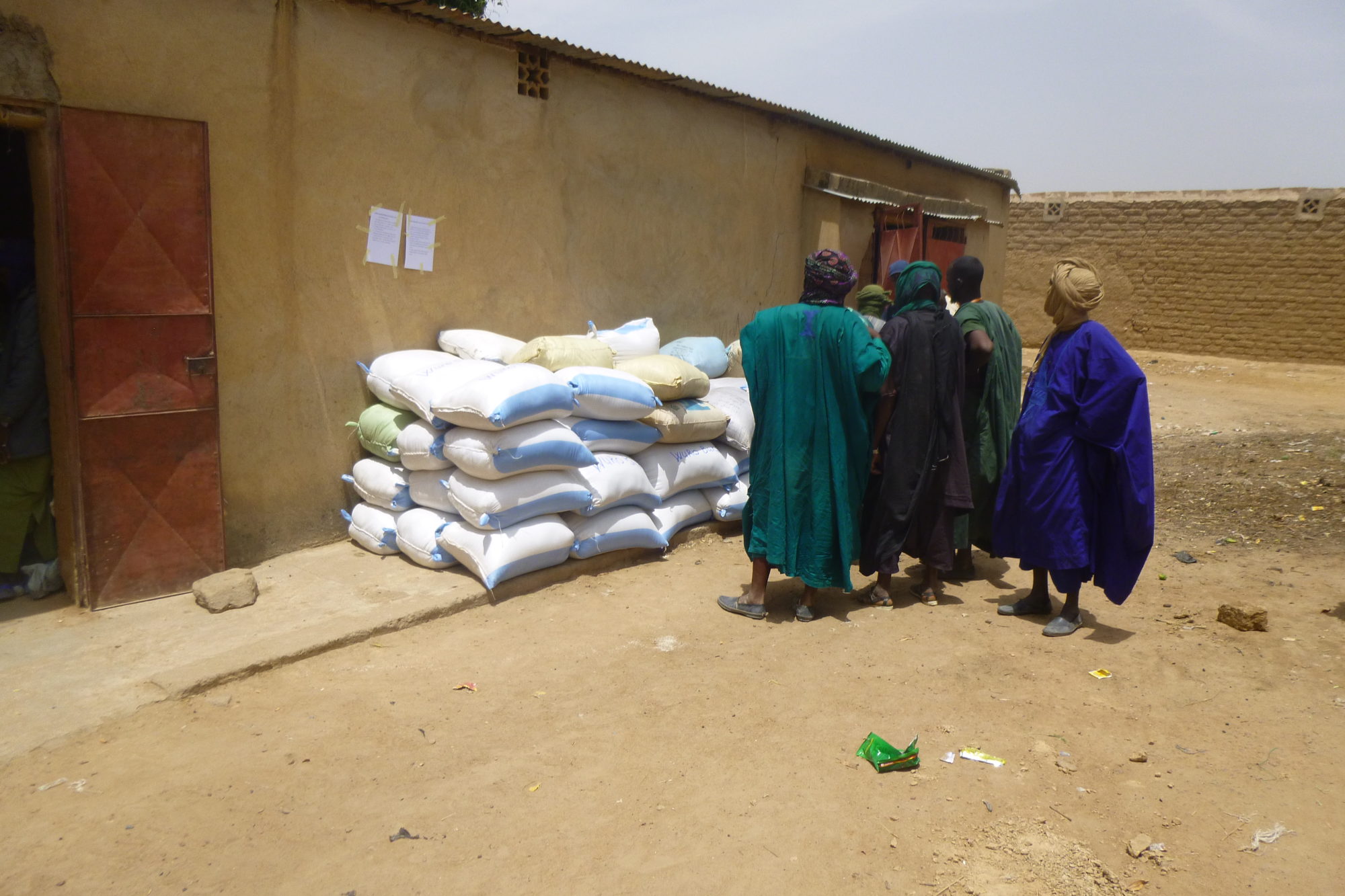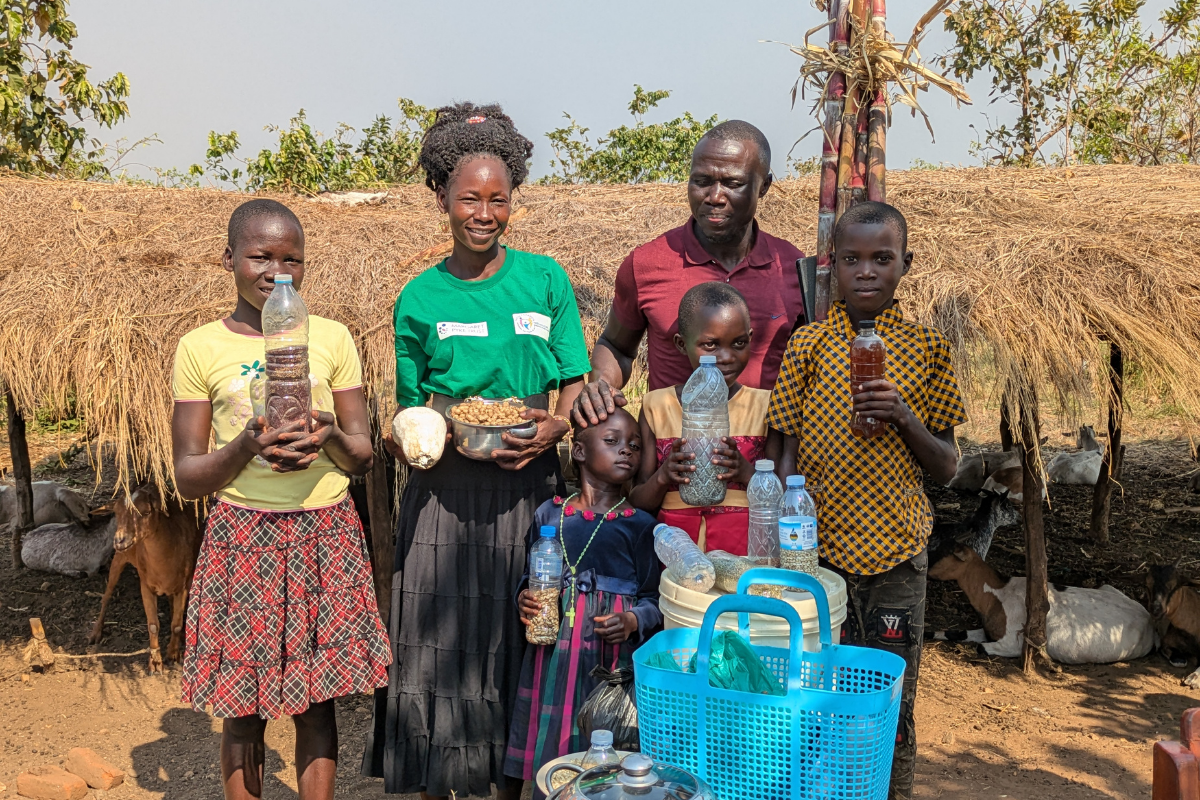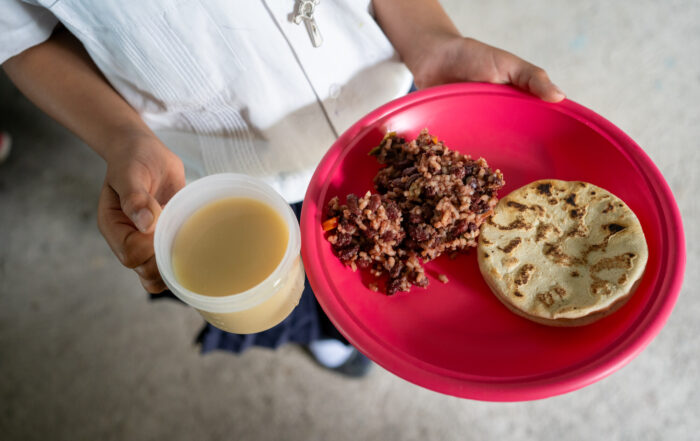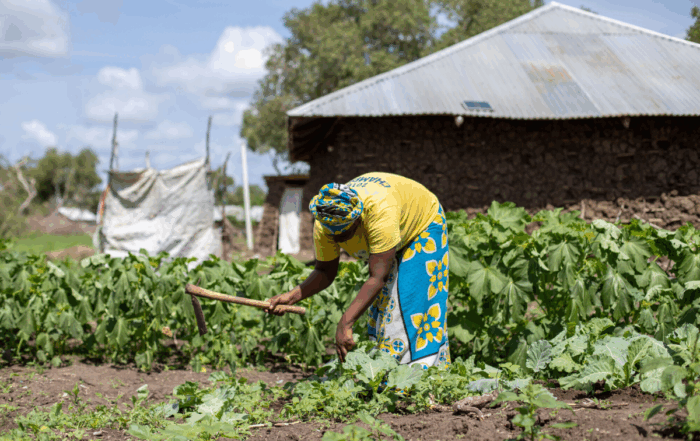The Consequences of Human Conflict

The hostilities in Ukraine have delivered daily reminders that the risks that conflict creates to human lives go beyond violence. Conflict also affects people’s ability to access food; in 2018, the United Nations recognized conflict as a key driver of severe food crises, including famine. And, as the world continues to watch events unfold in Ukraine, we have seen conflict drive over 6.6 million people to seek safety in other countries and another estimated 8 million people displaced within the country.
In one country where World Renew works in the Sahel region, the ongoing conflict has forced thousands of people to flee their homes. But the camps that provide refuge offer limited means for families to earn enough to meet their food needs.
Yuusuf*, 56, a father of 8, said: “After the arrival of the Jihadists, I left my village.…Currently, I have no fixed activity to feed my family. Before being internally displaced, I was a teacher…but here I have no [students].”
On December 1, 2021, World Renew and its local partner began providing food kits to displaced families in three camps. Adaeze, 30, a mother of 5, shared: “I was a beneficiary of the emergency program of World Renew and its partner. [I received] a kit consisting of 100 kg of rice, 40 kg of beans and 5 liters of oil. Before this, my family hardly ate once a day; but with the arrival of this food, my family eats 3 times a day.”
In the Sahel region, changing weather patterns have resulted in prolonged drought; harvests have failed, further impacting food security. On May 20, 2022 the United Nations projected that in the next three months over 18 million people in the region will face acute food insecurity.
The initial goal of World Renew’s program in the Sahel region, which ended on January 31, 2022, was to provide food to 50 of the most vulnerable households (300 people) for 2 months. But the conflict continues and families continue to wake to face each new day with the pain of hunger and hopelessness. Understanding the need, World Renew with its local partner has extended the program.
Amara, 20, a mother of 3, knows pain no mother should know. She lamented, “Because of the growing insecurity in our region, my husband and I left our village…a few days later, [there was] an accident in which we lost one of our children and a second was seriously injured.”
While the food kit cannot take away Amara’s pain, it eases the burden of worrying about how she’ll feed her surviving children. But, sadly, the Ukraine-Russia conflict is now threatening World Renew’s ability to stand by our commitment to support families like Amara’s.
Russia and Ukraine are major producers of wheat, barley, maize and oil; the escalation of the conflict has disrupted supplies and caused the prices of these commodities to skyrocket–putting strains on budgets, including World Renew’s. These rising prices are taking the heaviest toll on countries in Asia, Africa, and the near East, where the most vulnerable families were already struggling to meet their basic food needs. The Ukraine conflict is creating a global food crisis that is pushing an increasing number of people into food insecurity.
Martin Griffiths, the Under-Secretary-General for Humanitarian Affairs and Emergency Relief Coordinator for the Office for the Coordination of Humanitarian Affairs (OCHA), summed up the impact of the rising food prices on families in the Sahel region, saying “Entire families in the Sahel are on the brink of starvation . . . The recent spike in food prices driven by the conflict between Russia and Ukraine is threatening to turn a food security crisis into a humanitarian disaster. If we don’t act now, people will perish.”
*For security reasons the country cannot be identified and names have been changed to protect identity.
MORE STORIES AND NEWS
Uganda: Beyond food secure
Beyond food secure In Uganda February 11, 2026 Beyond food secure in Uganda February
Canada: Fasting for Change: Fighting World Hunger
Fasting for Change: Fighting World Hunger October 10, 2025 Fasting for Change: Fighting World Hunger
Tanzania: Building a Better Future
Building a Better Future in Tanzania October 7, 2025 Building a Better Future in Tanzania






